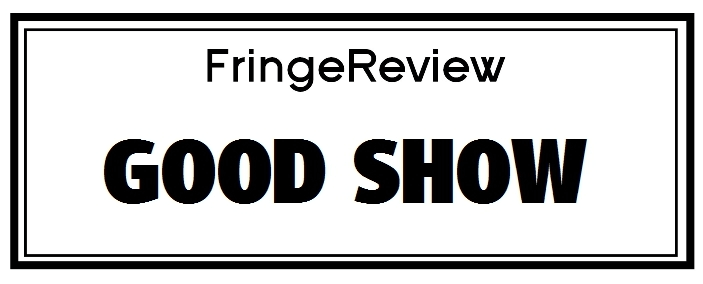FringeReview Scotland 2023
Low Down
Joanna married early; back in the day – the 1970s – finding yourself pregnant meant that was your pathway. But like at any time period, the rush to the altar does not always end well. In fact, we have flashback used to introduce the ghost of her innocent and hopeful past self who has during a reminiscing weekend where there is a bonfire being built outside and her husband is missing. He has not come home, Friday, Saturday and now Sunday as we are treated to the juxtaposition of lively Joanna who was 18 with the world at her feet, but her destiny out of her hands, narrated by an older version, beaten cowed but not surrendering.
Review
As we sat in amongst the target audience for this who sang, clapped, and reminisced alongside the cast there was little to complain about. It had hit its mark, and we had a theatrical event where 10 guitars were laid upon the blanket on the ground and many a Ne’erday was lit up with memories of Jim Reeves. The fact is that this works for them.
But there is a flaw.
For me, it is not totally in the cast, though the standout performance from Carolyn Calder held a lot of the set pieces together, particularly as Ian Paisley in drag. Acting off the line, Calder was a brilliant example of how to take an audience with you in character.
It was not totally in the direction either as the use of characters onstage who were past versions of our narrator and her family worked very well. The window downstage left was not an issue which I thought it might be as the sight lines were fine. I did wonder, however, where the idea came from to have the school toilet scene without the actor playing Anne-Marie in it and having young Joanna double the parts – a missed opportunity.
It was not totally in the sound which was patchy, and microphones were left on when they ought to have been dimmed. The balance between the click tracks and the singing was, at times way off, leaving Amber Conway with a mountain, at times to climb. In fairness a show which has almost a month between shows will struggle to maintain such consistency and standards.
It was the script.
I could get along with some of the clichéd terms which gathered recognition from those beside me, and I could take the narrative being about a battered wife and bullied woman from a time when it was all too common. But the balance and the structure were off. Act Two should have been the beginning, building our understanding of the young Joanna, before the pregnancy, the wedding and the inevitable abuse and it would have cemented the journey. We would have been engaged with more than nostalgia. Once that nostalgia had been established as the vehicle to draw us in, the descent for Joanna would have been more painful. It would have been highly effective. Ending Act One, rather than the play with the knock on the door, meant it refused to use a standard cliffhanger, but it needed to be replaced by something better and not something which left most of us confused as to whether the end was the end. If that had been the end, I would have been quite happy not knowing if the husband had ended up in the bonfire. Evidence of how the structure failed was when Joanna was singing and her husband shouted at her to stop – there was laughter in the audience because they were narratively confused.
And so, I came away a bit confused, myself. The fact was that I enjoyed it with the performances and the set pieces keeping me going. There was plenty to laugh at, especially the singing along from the audience I felt this was scratching a surface, like an itch. It felt like there could be more to give and more to receive. But for what we did receive we were grateful, frustrated but grateful.



















































